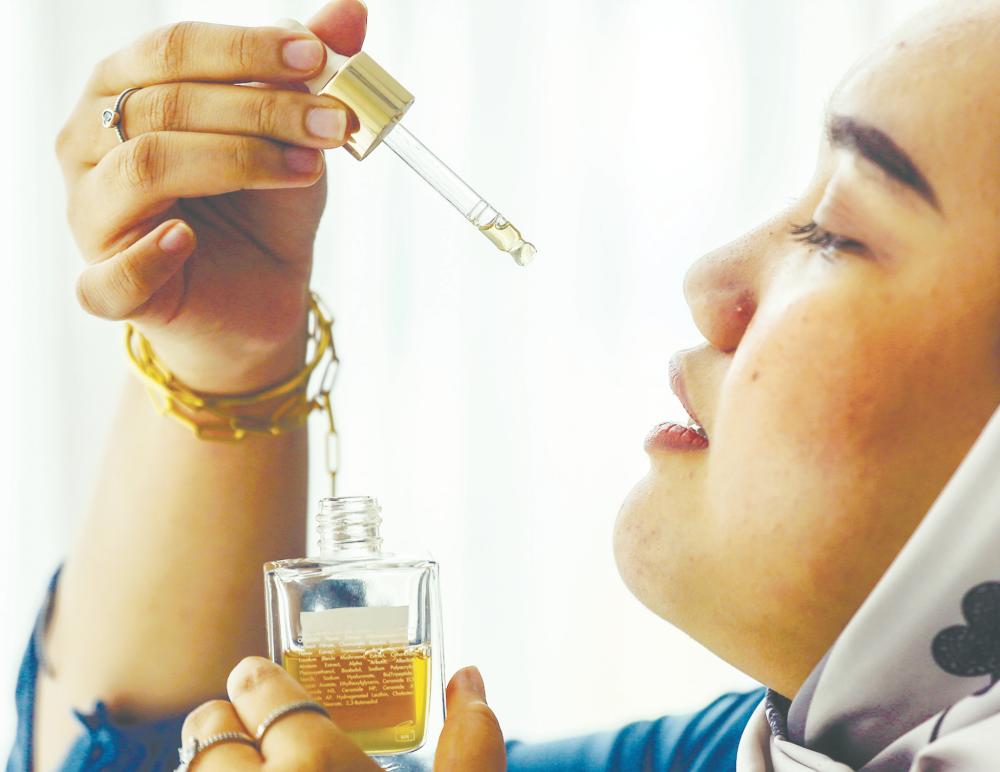PETALING JAYA: After the Health Ministry recently halted the sale of a popular China-based cosmetics brand that marketed its products as “edible”, experts are warning against the dangerous trend of consuming skincare products, which could lead to organ failure and life-threatening conditions.
Health Minister Datuk Seri Dr Dzulkefly Ahmad confirmed that the National Pharmaceutical Regulatory Agency has demanded an explanation, citing violations
of its guidelines for cosmetic claims and guidelines for cosmetic advertisement.
Aesthetic dermatology expert and founder of a supplements company Dr Lim Ing Kien described the practice as “extremely dangerous” and criticised parties promoting edible skincare products.
“These products are specifically formulated for external use and contain ingredients that can be toxic when ingested. They include preservatives, emulsifiers and chemicals necessary for skin application, but which can cause severe gastritis and organ damage if consumed,” he said.
Lim recounted a case involving a young patient who suffered severe gastritis after ingesting an allegedly “natural” face mask after being influenced by social media claims that it was edible.
“The patient required emergency medical intervention, but unfortunately, it was not an isolated incident.”
He stressed that “edible skincare” is merely a marketing gimmick and while some products may use food grade ingredients, that does not make them safe for consumption.
“The formulation as a whole is designed for stability and efficacy on the skin when used topically. They should not be ingested.
“Exaggerated claims prompt dangerous misconceptions, leading to improper product use. In the long run, this discourages people from seeking professional dermatological care when needed.”
Lim urged consumers to scrutinise product labels and verify ingredients with trusted sources such as dermatologists or regulatory portals such as INCIdecoder, an online cosmetic database.
“Be wary of vague promises or ‘miracle’ solutions that seem too good to be true. Properly regulated products will always have clear and measurable claims, not exaggerated or sensational ones.”
He called on the ministry to adopt a more proactive approach in addressing the issue, given the rapid growth of the skincare industry and online sales, making it easier for misleading products to reach consumers.
“The skin is the largest organ of your body and what you apply to it matters. Do not fall for marketing hype or unverified claims. Always read labels carefully, patch-test new products and consult healthcare professionals when in doubt,” he said.
Universiti Kebangsaan Malaysia public health medicine specialist Prof Dr Sharifa Ezat Wan Puteh similarly warned against believing claims that skincare products are edible.
“Such claims have dire public health implications since most cosmetic products contain chemicals that are unsuitable and unsafe for consumption. Vendors making such claims must provide toxicology or scientific reports proving the absence of toxic chemicals and ensuring safety for ingestion.”
She emphasised that cosmetics are not formulated as nutritional products and without scientific evidence supporting their consumption, these claims are not merely misleading but outright false.
Sharifa Ezat also warned that ingesting skincare products could trigger severe allergic reactions due to their toxicity. Their chemical composition is not designed to be processed internally and may disrupt bodily functions.
She urged consumers to remain cautious, conduct research and choose products backed by toxicology reports from certified institutions.
“Consumers need to take these claims with a pinch of salt. Reliable products will always have proper documentation and certifications from reputable organisations or laboratories.”
She advised consumers to stay vigilant and rely on evidence-based information when purchasing skincare products.
“Do not fall for exaggerated or sensational claims, and always verify a product’s safety. Consult experts when in doubt.”









